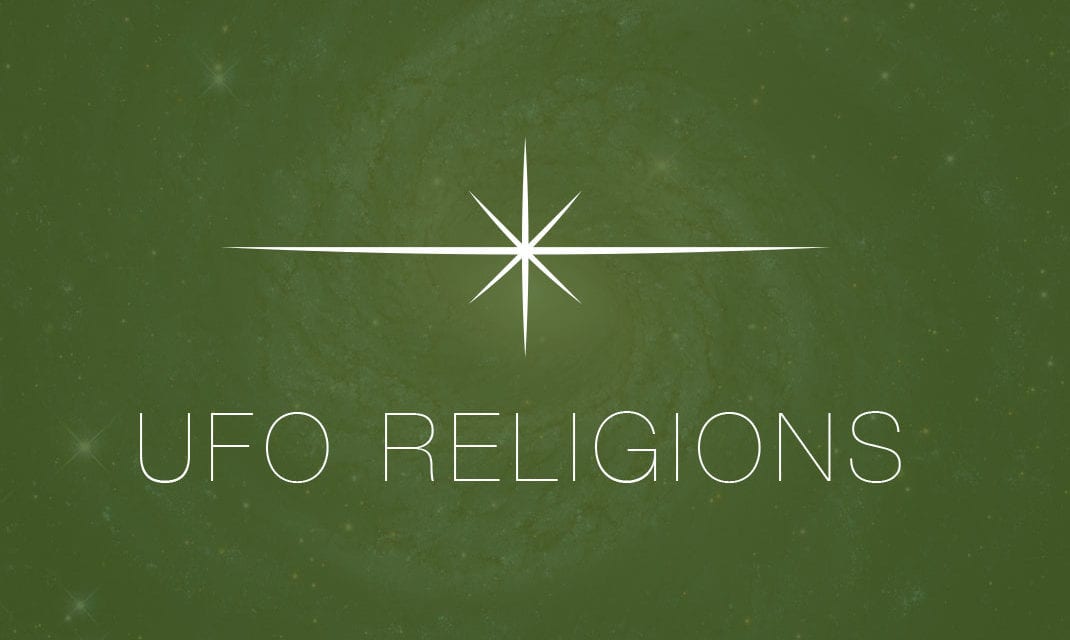You’ll be interested in this recent post by UFO Digest (authored by Michael Cohen). Cohen’s observations range from the “insightful, but it’s obvious” to the propagandistic level of “sweeping generalization.” Some examples:
In the “insightful but it’s obvious” category are his criticisms of mainstream Christianity, specifically the health and wealth consumeristic nonsense you see on TV:
Much of what passes off as religion in current Western civilization is not designed to provide any fulfilment.
These religions are not antidotes or islands of respite from materialist life outside the church or the temple. They are in fact merely there to egg on western consumer society and further push the interests of empty materialism. Plastic religions for plastic societies.
Since this disdainful slice of Christianty seems to be the level of Mr. Cohen’s exposure, what he says is understandable (and I think accurate, since I don’t consider this hucksterism to be authentic Christianity in any way, and a large percentage of Christians would be with me there). But therein is the problem as well — under-exposure makes some of his other comments little more than sweeping generalizations. Cohen dopily equates the Protestant work ethic with the Prosperity Gospel nonsense. Sorry, but I can’t see Martin Luther or John Calvin as televangelists. We are also treated to such profundities as this:
Spiritually satisfied people are not economically productive: Angry, disappointed ones are. Making people disillusioned is the very purpose of these faiths and those genuinely seeking answers or meaning in life beyond the newest flat screen television might be advised to shop elsewhere.
It’s hard to describe how far from reality this description is in terms of the vast majority of Christian endeavor. Has Mr. Cohen ever heard of charitable work? Missions? Hospitals? Christians are behind a large percentage of these things. Economically unproductive Christians? Uh, how could you be following a WORK ethic and be unproductive?
But maybe Mr. Cohen didn’t know where to look as he busied himself doing research for his article. Here’s a short list of well known Christian business people that took about thirty seconds to find:
Truett Cathy – founder Chick-Fil-A
Cecil Day – founder Day’s Inn
Arthur DeMoss – businessman and author, founder, DeMoss Foundation
H.G. Heinz – founder, Heinz ketchup
Norm Miller- Chairman of the Board, Interstate Batteries James Cash Penney (1875-1971) – founder, J.C. Penney department stores
Dave Thomas – founder, Wendy’sSam Walton – founder, Wal-Mart
But we all know it isn’t the large businesses that make the economy go. It’s small businesses. Maybe there are some Christians there, too. If I were doing any research for an article where I’d be making statements about non-productive Christians, I might spend another thirty seconds on Google and find sites like Christian Businessmen Connection, or the International Fellowship fo Christian Businessmen. Heck, I might even check the Internet for whether there’s a “Best Places to Work” site that focuses on Christian businesses.
Putting all that exhaustive research and analysis aside, anyone who reads UFO material with an eye to its belief systems knows that there is nothing *new* to the “spirituality” being put forth by the UFO sub-culture of today. It’s simply an amalgamation of ancient paganism (and I’m not using that term pejoratively; I’m using it academically) and “eastern” spirituality modified for a technological culture. It’s easy to find essays on this (cf. Christopher Partridge’s book, UFO Religions, or his other volume, The Re-enchantment Of The West: Alternative Spiritualities, Sacralization, Popular Culture, and Occulture, which includes more discussion of UFO spirituality).
I also have to wonder what’s spiritually fulfilling about a belief system centered on conjecture and anecdote. Until we actually have hard *science* for intelligent ETs, that’s what you’ve got, Mr. Cohen.
Nothing new here, but you might be interested anyway.





